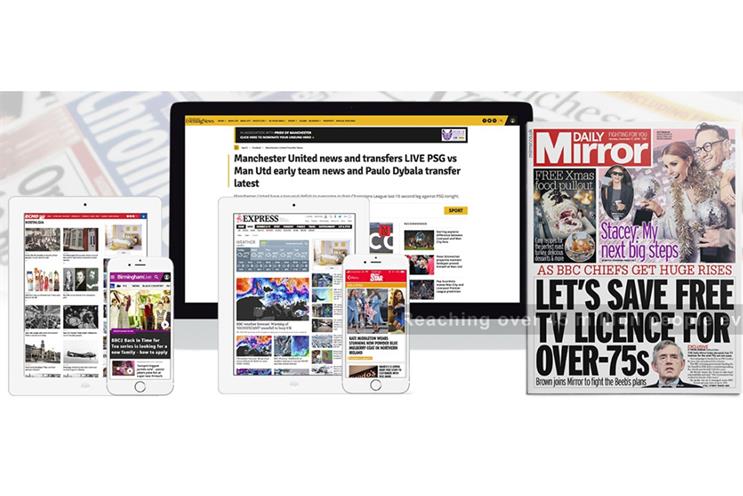
Simon Fox is standing down as chief executive of Reach, the owner of the Daily Mirror and Manchester Evening News, after seven years and handing over to Jim Mullen, a former chief executive of Ladbrokes Coral Group.
Fox departs after leading a wave of consolidation that turned Reach, formerly known as Trinity Mirror until a rebrand last year, into Britain’s biggest regional news publisher.
Acquisitions included Local World, the regional news publisher, in 2015 and Northern & Shell’s media assets, including the Daily Express, Daily Star and OK!, in 2018.
Fox also restored the dividend, up in the current period for the fifth time during his time in charge, and slashed Reach’s net debt to £13m during a period when the news industry suffered badly as Google and Facebook sucked up billions of pounds of UK ad revenues.
He said: "There is never an ideal time to leave an organisation, but if there were it would be now. The integration of the Express and Star has been successfully completed, digital growth is accelerating, and our trading and cash position are strong."
In a sign of how Fox has battled to increase the size of the business despite M&A, the publisher reported flat half-year revenues of £352.6m in the six months to June 2019 – down 0.3% year on year, partly helped by acquiring the Northern & Shell assets.
Turnover was almost exactly the same as the same period in 2012, before Fox took over, when the group posted £356m in sales.
Fox said: "I am proud of what has been achieved and will provide Jim with whatever support is required to ensure a smooth handover."
It is the second time that Reach has turned outside the media industry for a chief executive. Fox previously ran music retailer HMV.
Although Mullen has spent much of the past decade in the gambling sector, he brings some media experience because he previously worked as director of digital strategy at News International, now known as New UK, and spent 11 years in the advertising industry.
According to his LinkedIn profile, Mullen spent more than six years as a director of digital at Arc, part of Publicis Groupe’s Leo Burnett, and four years as group head of technology for Scottish marketing company The Faulds Group.
Last year, he took an advanced management course at Harvard Business School.
National advertising performing better than regional advertising
During a presentation to investors, Reach's new chief financial officer Simon Fuller said the business was in good health and had "best-in-class cost management".
Operating margin for the first half was at its highest level since 2007 – before the global financial crisis, when Trinity Mirror’s share price crashed 90% at the end of the last decade – and digital revenues are on course to pass £100m this year.
Net debt has dropped to just 0.1 times earnings before exceptional items, giving the publisher "firepower" to invest in the business.
Leaving aside the benefit of the Northern & Shell transaction, like-for-like revenues fell 6.3% in the first six months of this year – with national advertising performing better than regional advertising, the group said.
Digital revenues, chiefly from advertising, rose 9.7%.
Print circulation fell 3.9% and print advertising slumped 19% (excluding a planned reduction in The Health Lottery’s advertising by its owner, Richard Desmond, the former owner of the Daily Express).
Fuller said Reach plans to disclose a total print revenue number in the future, rather than giving separate numbers for print circulation and print advertising.
Fox added that print still mattered. A special issue of the Liverpool Echo, published the day after Liverpool’s Champions League final victory over Tottenham Hotspur, sold four times the usual amount.




.jpg)
.jpeg)
